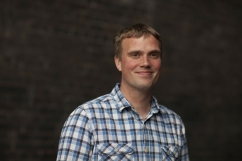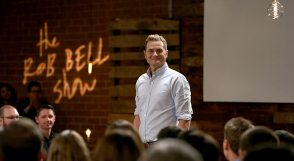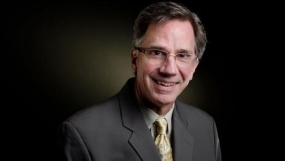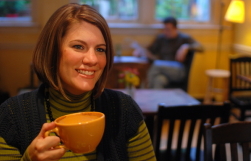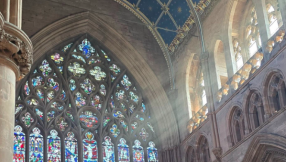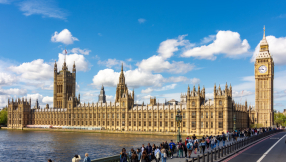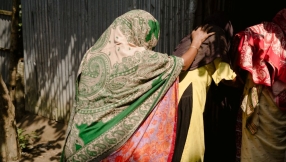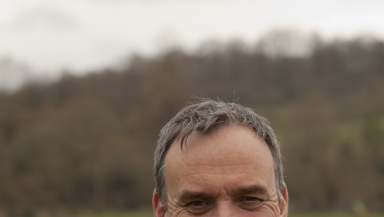
'L'Heureux Naufrage' (The Fortunate Shipwreck) is an extended exploration of the spirituality of contemporary Quebec. Directed by Guillaume Tremblay, the film is built on interviews with writers, philosophers, clergy and recording artists from French-speaking Canada and from France itself.
Predictably, most of those interviewed have left the church behind – particularly the Catholic church, which until recently dominated Quebec to a frightening extent, as it did France in earlier decades.
But here's the twist. The scholars and celebrities interviewed by Guillaume Tremblay aren't talking about how much they hate the Christian faith. They talk about how much they miss it. Even sworn atheists among them speak with a deep respect for the heritage of Christianity, and especially for the person and teachings of Jesus. Specifically, they speak of the values implicit in the Gospels – of love and sacrifice, of dignity and freedom – that they fear, without faith, their culture is losing.
I was massively encouraged by L'Heureux Naufrage when I saw its premiere in Paris last week, and by the brief conversation I was able to have after the screening with Guillaume Tremblay. "The film is my own story," he said. "The emptiness it talks about is the emptiness I feel. I wanted to ask others, those older and wiser than I am, if they felt the same."
Why did this film touch me so? Because it parallels so many conversations I have had in recent years with young adults on the edge of – or on the way out of – the evangelical community. The parallels of disillusionment are self-evident. The reasons Catholics no longer practise in France and Quebec are not so different from the reasons young evangelicals ditch the Church.
They identify a cold and toxic judgmentalism that they are tired of. They realise that the faith they are being asked to defend looks a lot more like the hard-line Pharisaism Jesus opposed than the message he himself brought. They decide that they'd rather keep their friends even if it means losing their ticket to heaven. Ditto keeping their integrity. Ditto their sanity. Ditto their simple acceptance of life as it is. The greatest tragedy of this mass exodus is not that it is happening – it is that so many church leaders are painfully unaware of it.
Tremblay's film also parallels the evangelical world in another way, though, and I dare to see this as a sign of hope. It is that those walking away from faith are realising, in ever greater number, that good things, too, are being left behind. There are aspects to the life of faith – and, I would suggest, specific aspects to the evangelical approach to faith – that are hugely valuable and hard to find in any other place.
For me, the power to forgive and to know myself forgiven are chief among these. I have stayed with the evangelical tribe – despite all the caustic conversations, the acid poured daily on the Church I love – precisely for this reason. I don't think there is another narrative that can account for the life I have lived, for the grace I have received. I am willing to concede the many faults of our churches. I am not yet ready to give up the story that has shaped my life so deeply for the better.
There is a quiet revolution, I dare to hope, passing like a wave through the evangelical churches of Western society. It is a revolution of love – of people wondering what their faith would be like if God really was, after all, pure love, and if nothing else mattered very much. Ten years ago I would have characterised this movement as a tide of those leaving an evangelical faith behind. Now I think it's something different. I think it's a counter-current of people finding good reasons to stay with the tribe. I am one of these, overwhelmed by the prodigal love of a God who has embraced me with neither hesitation nor condition.
We have some work to do, to rid our tribe of its tendency to judge, reject and shame our friends and neighbours. If we can do it; if we can peel the barnacles from the hull of our boat; If what remains when it's done is the love of God revealed in Christ, then there is indeed hope that many will stay. And even that others, too, will return.
Based in Normandy, France, Gerard Kelly co-leads, with his wife Chrissie The Bless Network, a missions movement committed to renewal across mainland Europe. Gerard's book The Prodigal Evangelical is out now.










